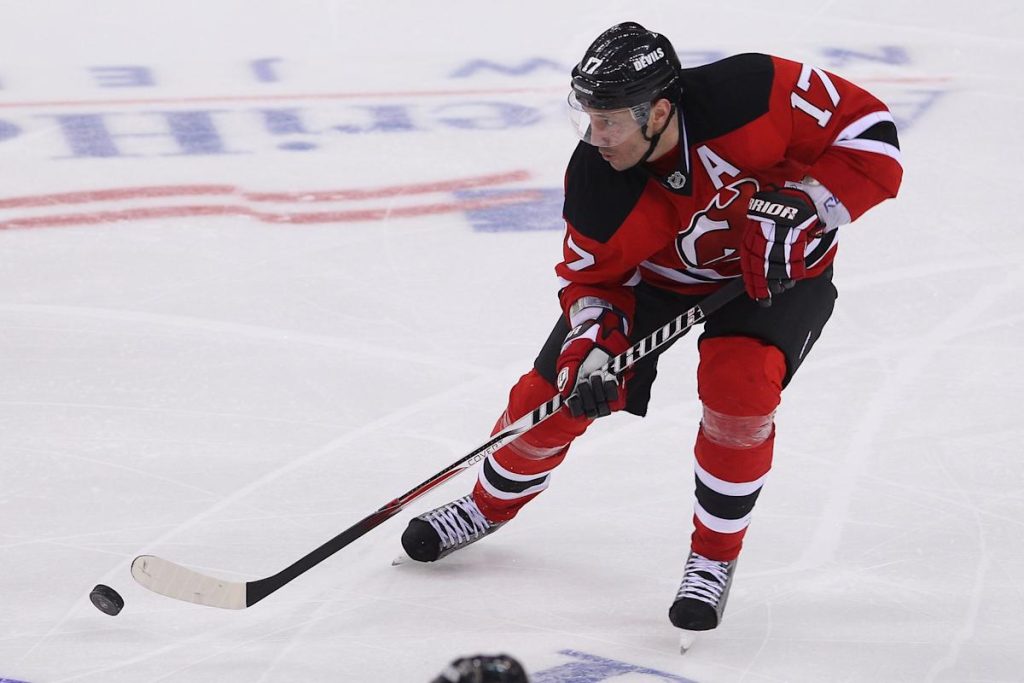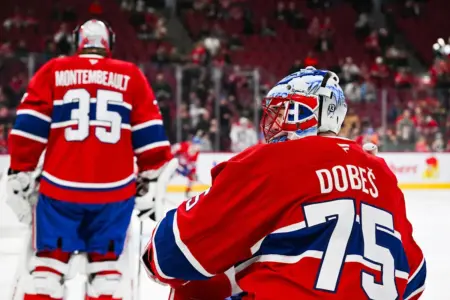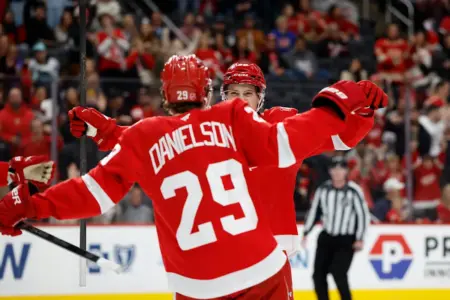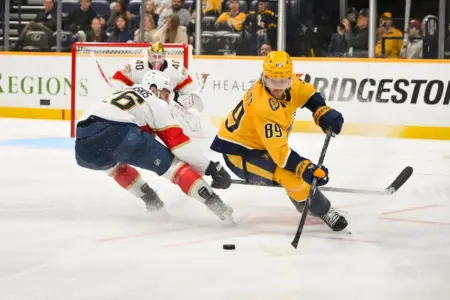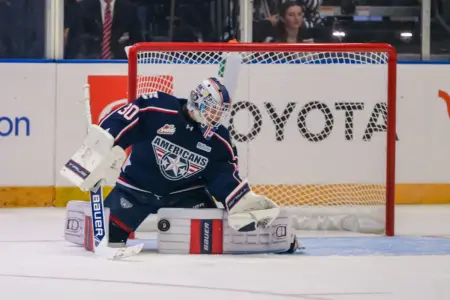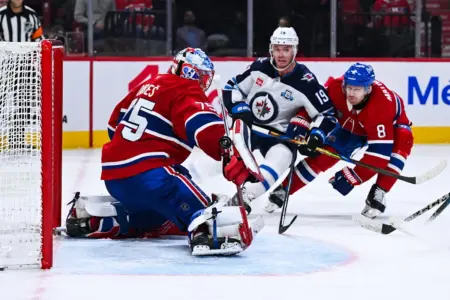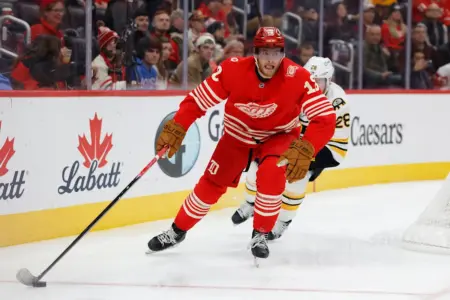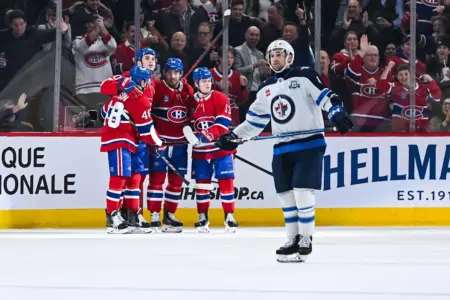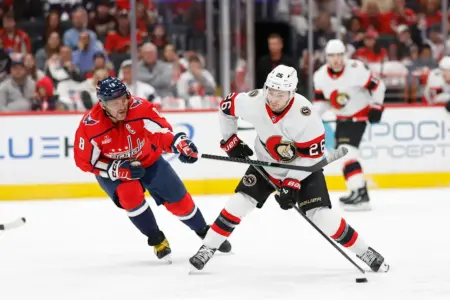Ilya Kovalchuk: A Tale of Triumph and Turmoil
From the moment he arrived in Atlanta just months after being selected first overall in the 2001 draft, Ilya Kovalchuk was the Thrashers. Despite the likes of Marian Hossa, Dany Heatley, Marc Savard, and Vyacheslav Kozlov flitting in and out during his time in Atlanta, Kovalchuk remained the untouchable, undeniable, and unstoppable face of the franchise. His impact was staggering: in every season in Atlanta, Kovalchuk finished first or second in goals, no lower than third in points, and netted more than twice as many goals and nearly 200 more points than anyone with whom he shared a dressing room.
However, when Kovalchuk was on the cusp of free agency in 2010, he made it clear to the Thrashers that he was uninterested in re-signing. This set the stage for a monumental swap that kicked off one of the stranger modern-day off-ice sagas. The New Jersey Devils acquired Kovalchuk, Anssi Salmela, and a 2010 second-round pick (Jon Merrill) in exchange for Johnny Oduya, Niclas Bergfors, Patrice Cormier, a 2010 first-round pick (to CHI), and a 2010 second-round pick (to CHI). Despite the sizable trade package, the Devils received no guarantee that Kovalchuk would sign. After the Devils’ first-round playoff exit, Kovalchuk tested the market but ultimately decided to sign a 17-year, $102-million deal with the Devils. However, the pact was voided the next day due to salary-cap circumvention. It took months, but by September, a landmark 15-year, $100-million deal was signed and certified.
The Ups and Downs in New Jersey
What followed were ups and downs for both Kovalchuk and the Devils. The club missed the playoffs in his first and third seasons in New Jersey but made an unexpected drive to the Stanley Cup final in 2012, falling to the Los Angeles Kings. The biggest twist came after the lockout-shortened 2012-13 season as Kovalchuk announced his NHL retirement. Having played in the KHL during the lockout, he wanted to return to Russia. He did so with 12 years and $77 million remaining on his contract. Perhaps Kovalchuk’s tumultuous time in New Jersey softened the blow in Atlanta. The Thrashers managed to use the pair of 2010 picks to acquire Dustin Byfuglien from Chicago, adding a significant piece to their roster.
Alec Martinez: A Steal for the Golden Knights
Not all deadline deals pay immediate dividends. Such is the case with the Vegas Golden Knights’ acquisition of Alec Martinez from the division-rival Kings. At the time of Martinez’s arrival, Vegas’ blueline was its greatest weakness. Though the back end was run by Shea Theodore and Brayden McNabb, an evident drop-off in defensive reliability necessitated the Golden Knights’ search for a solid rearguard who could anchor the second pairing. Martinez, a two-time Stanley Cup winner in Los Angeles, was an obvious target. And while Martinez didn’t immediately help Vegas over the hump, he was integral to the franchise’s 2023 Cup victory – only Alex Pietrangelo saw more minutes.
To make it sweeter for Vegas, the cost of doing business with Los Angeles was next to nothing. The Kings leveraged the picks to land Lias Andersson, who now plays in the Swiss League, and Francesco Pinelli, who has yet to make his NHL debut. The trade proved to be a win for the Golden Knights, solidifying their defense and contributing to their championship aspirations.
Evander Kane: A Blockbuster Deal with Long-Term Benefits
Despite his denials, Evander Kane’s desire to leave Winnipeg was no secret. In fact, months after this blockbuster deal, Kane confirmed as much to The Hockey News’ Ken Campbell, saying he’d “asked for a trade every off-season in Winnipeg.” The deal saw the Buffalo Sabres acquire Kane, Zach Bogosian, and Jason Kasdorf in exchange for Tyler Myers, Drew Stafford, Joel Armia, Brendan Lemieux, and a 2015 first-round pick (Jack Roslovic).
Initially, it seemed the Jets’ acquiescence was primed to backfire. Rarely does a franchise trade a 30-goal threat and tack on an established top-four defender and come away the better. However, after three productive seasons, Kane was out in Buffalo, and an oft-injured Bogosian played just 243 games in six seasons for the Sabres. Meanwhile, Drew Stafford was a half-point-per-game player during his time in Winnipeg, Tyler Myers and Joel Armia were pieces of a Jets team that made a Western Conference final run in 2018, and the 2015 first-round pick landed Jack Roslovic, who had a few productive seasons. The Jets’ return wasn’t splashy, but in the aggregate, the long-term winner was Winnipeg.
Ray Bourque: A Legendary Career Finds its Climax
Legend has it that Ray Bourque was almost a Philadelphia Flyer. After it became clear the bottom-feeding Bruins would deal Bourque, several teams stepped up, and even Bourque has said he believed he was on his way to Philadelphia, which finished the 1999-2000 season as the top team in the East. But after negotiations between the Flyers and Bruins fell apart, Boston struck a deal with Colorado, sending the eventual Hall of Fame blueliner to the Avalanche.
Bourque’s dream of hoisting Lord Stanley went unfulfilled in his first attempt in Colorado, as the Avs were felled in the Western Conference final by the Dallas Stars. But persistence paid off. Bourque passed on free agency and re-signed in Colorado only weeks after the playoff exit. The then-40-year-old finished second in Norris Trophy voting in 2000-2001 and was central to Colorado’s 2001 Stanley Cup victory, racking up 10 points along the way and capping it with the most iconic Cup-raising moment in league history.
Viacheslav Fetisov: A Veteran’s Final Chapter
Despite Viascheslav Fetisov playing five-and-a-half solid seasons in New Jersey, the realities facing Fetisov and the Devils in April 1995 were as follows: the blueliner was nearly 37, he had lost his top-four spot and was often sidelined, and New Jersey was playing well enough that he had become expendable. That opened the door for Detroit, the West’s top team, to scoop up the veteran defenseman for effectively nothing – the pick sent to the Devils was used to select David Gosselin, who played just 13 NHL games, all with the Nashville Predators.
Despite the meager return, the swap was a win-win. It got Fetisov off the Devils’ books without hampering their performance; New Jersey defeated Detroit, of all teams, to win the 1995 Stanley Cup. The painful defeat calcified the Red Wings, who won titles in 1997 and 1998, their first back-to-back Cups since the 1950s. Fetisov played in all but one game of those consecutive championship runs, adding a final chapter to his illustrious career.

